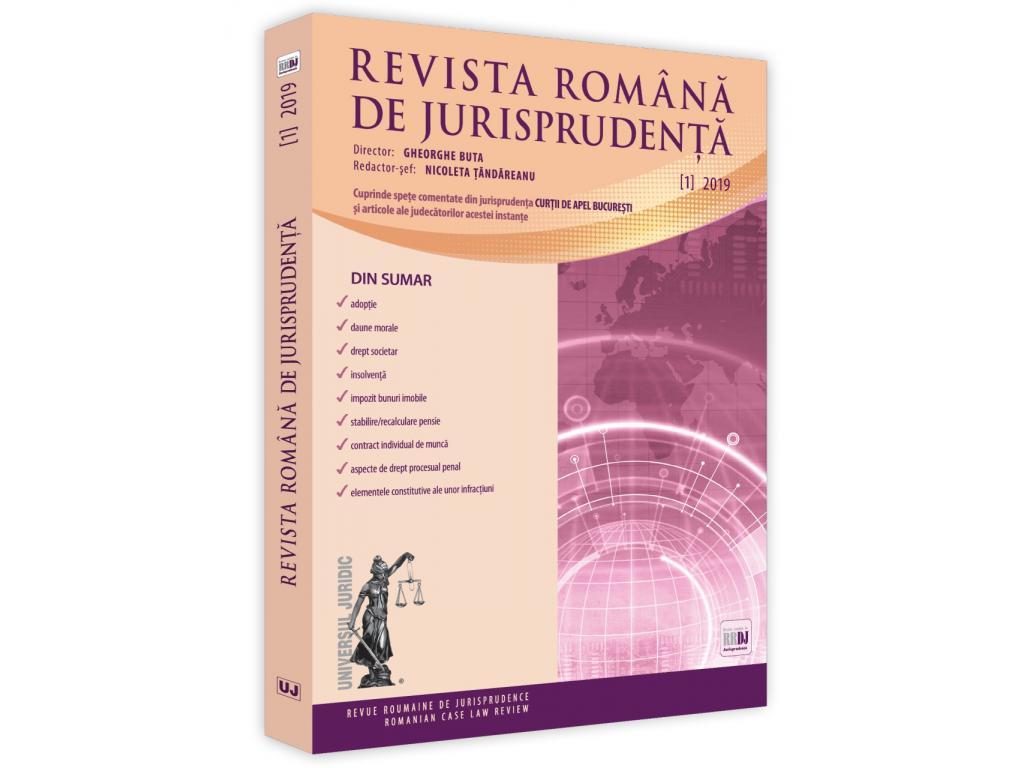Applicability of the provisions of art. 19 of Law no. 682/2002 on the reduction of the punishment limits, during the enforcement of the sentence
DREPT PENAL ŞI DREPT PROCESUAL PENAL
Abstract
The court finds that the legal text of art. 19 of Law nor. 682/2002 is unclear, unforeseeable and that it is interpreted in an extremely non-uniform way in the practice of courts at the level of all levels of jurisdiction (…) For the perpetrator who became an informer, the text involves the obligation to disclose before or during the criminal prosecution or the trial, the action of committing a serious offense by a different person and of discharging thus, the obligation of the criminal prosecution body to discover in time and completely the deeds representing offenses and to facilitate, thus, the activity of holding criminally liable these persons, who in the absence of the denunciation, would have remained undiscovered. (…) Stricto sensu, holding criminally liable involves the criminal punishment of a person, however, for various reasons, it is possible that this should not occur, independently of the informer’s contribution, which means the deprivation of substance, the uselessness of the favour provision established by art. 19 of the Law (…) However, law does not set forth which are the consequences of a denouncement filed within the legal deadline (during the criminal prosecution and trial), but materialized, exploited after the final conviction of the informer (…) As certain courts were in the situation to provide a solution to this issue, they considered that, if they shared the opinion according to which art. 19 can only be applied during the trial, they would face an unfairness situation as regards the claimant in appeal, whom no fault may be charged with in the fact that the file made up as a result of his denouncement, was completed subsequently to the declaration of the conviction sentence as final. Likewise, it has been shown that, in the case where the denouncement filed during the trial materialized after the final settlement of the case, and the provisions of art. 19 of Law no. 682/2002 shall apply by way of appeal against enforcement, according to art. 598 paragraph (1) letter d) of the Code of criminal procedure, the reference being made to a case of punishment decrease; in this way, no new individualization of the punishment is made, however, it is only checked whether it is classified into the reduced limits and, if not, the respective limit of punishment shall be reduced to the maximum special reduced limit if the punishment applied to the convicted exceeds this maximum limit, as reduced as a consequence of applying art. 19 of Law no. 682/2002.








